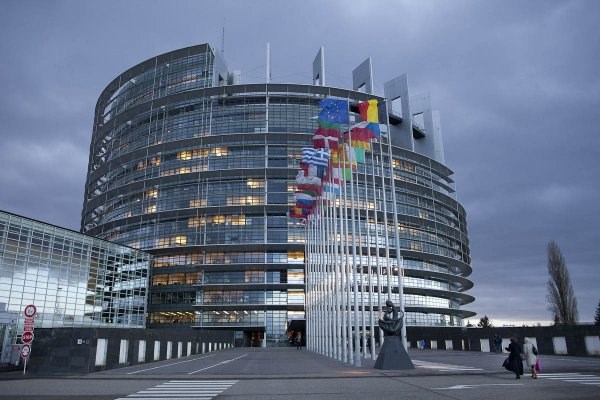EU Parliament calls for response to Russian minisformation
European Parliament has passed a resolution which names Russia as the chief – albeit not the only – source of misinformation directed against EU countries and other European countries, especially Ukraine and Georgia,reports Deutsche Welle..
In a resolution passed on October 10, EU lawmakers drew attention to the “extremely dangerous nature of Russian propaganda,” and urged the European Commission to develop “an effective strategy to rapidly and reliably counter Russian misinformation”. In addition, the parliamentarians consider it necessary to create an international legal framework for countering hybrid threats, including cyberattacks and misinformation.
469 members of EU Parliament voted in favor of the resolution, 143 voted against it, and 47 members abstained.
European Parliament is worried about attempts to influence the process and outcome of elections not only within the EU, but also in its neighbors. The Balkan states and members of the Eastern Partnership program, especially Georgia and Ukraine, are mentioned as victims of attempts to undermine the “normative basis and principles of European democracy and sovereignty”.
The lawmakers believe that the EU should provide specific assistance to such countries. The proposed measures include support for independent media outlets in the Balkan states and Eastern Partnership countries.
After European Parliament’s elections in May this year, the European Commission said that there had been attempts to influence the elections through fake news originating in Russia, and cited specific examples, but clarified that it was too early to speak of a coordinated Russian misinformation campaign.
Speaking at debates in European Parliament on September 17, European Commissioner for Security Julian King said that there is no proof of “large-scale coordinated misinformation attacks”. “But, unfortunately, this does not mean that these [European Parliament] elections were free from misinformation,” he added, citing an example from Germany, where only one party accounted for 86% of all political agitation on Facebook.
However, the commissioner pointed out that most of this agitation was generated by roughly 80,000 dubious accounts with names consisting of only two letters. “Large-scale automated propaganda and misinformation is regrettably a fact of our modern political life,” King lamented. He did not specify the party in question, but it was clearly the right-wing populist “Alternative for Germany” party, which openly sympathizes with the Kremlin.
In European Parliament’s new resolution, Russia is once again called the “primary source” of misinformation in Europe, although it is noted that Russian governmental and non-governmental organizations are not the only ones involved in “subversive interference” in the socio-political life of EU member states.
